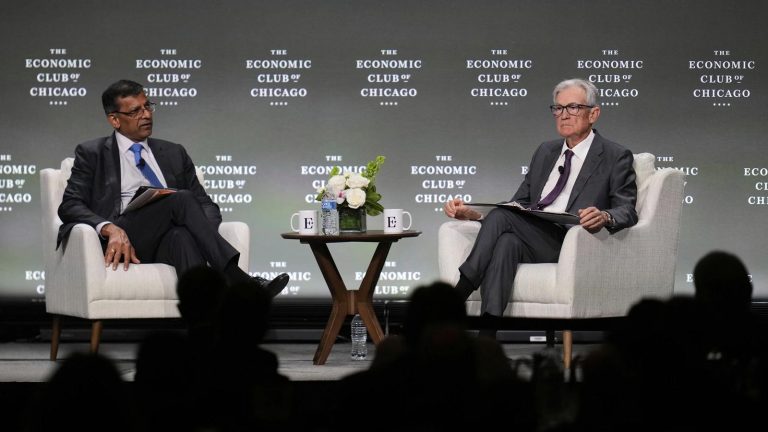
Retiring Too Soon? The Silent Struggle Facing Federal Workers | Image Source: www.dailynews.com
WASHINGTON, D.C., 30 March 2025 – A radical resignation initiative by the government’s Department of Efficiency, part of President Trump’s broader program to reduce the federal government, has led more than 2 million federal employees to reassess their future. Tens of thousands of them have already accepted the offer, with many eyes on early retirement. However, what is beyond paperwork and farewell emails may not be as serene as you imagine. The sudden exodus catalyzes not only economic recalculations, but also emotional and psychological calculations among workers who had planned five to ten years of stable employment.
According to the United States, today, an increasing number of federal employees are fighting the reality of shipping without planning, and in many cases without preparing for retirement. Elizabeth Zelinka Parsons, a former Wall Street lawyer who left her legal career quickly to raise her children, then reinvented as a retired – transition coach, followed this change closely. In his book Encore: A Guide to Retirement for Seniors, he considers retirement as more than a financial equation, it is an emotional and identification transformation.
Why are so many federal workers retiring now?
The answer lies partly in politics and partly in politics. The Trump administration’s desire for government rationalization has encouraged the outflow of funds through federal agencies. While some workers have long waited for the opportunity to flee, others feel in a hurry at a stage in their lives that they had not prepared mentally or financially. As the New York Times said, unplanned outings can have undulating effects – emotional, cognitive and financial – especially for those whose identity is closely linked to their professional role.
“I can say I crossed the desert for three years,” said Parsons in an interview, describing his own disoriented experience after leaving his high-power legal career. His return to a satisfying life involves redefining his identity, finding a new meaning and finally helping others to do the same. This process, he points out, is now relevant to thousands of federal workers making a similar leap, often unintentionally.
Q: What lowers the retreat emotionally?
A: Retirement interrupts more than pay. Fight the routines, community ties and validation you receive from your professional role. Parsons emphasizes that emotions such as pain and anger are natural and even necessary. “Don’t let it harden in permanent bitterness,” he says. Writing about transition or getting involved with others in similar situations can relieve emotional tension.
Letters to publishers, such as those published by the New York Times, echo these feelings. A retiree described cleaning a permanent collection of class notes as a kind of duel. Another, eight years after retirement, spoke of the persistent challenge of being mentally acute and finding a new goal. They are not isolated voices, but they represent a generational calculation with the very concept of retirement.
Q: How can they recover identity and purpose?
A: The foundation is in the retreat of the reframing as a diploma, not an end. According to Parsons, pensioners must try to rediscover inactive passions or assume new roles. “As human beings, we like to belong to groups,” he says. Building social ties, setting personal goals and participating in community activities can give meaning to the objective.
Helen Dennis, an expert in aging and retirement, led her even more to bring the journey back to four elements: passion, goal, opportunity and achievement. He urged pensioners not to allow the narrow definition of an ageing society to limit their search for new challenges. “It is not the end of the days of challenge,” he writes, highlighting examples such as Mother Teresa, who continued his humanitarian work in the 1980s and grandmother Moses, who began painting in the 1970s.
Q: What are the concrete financial measures to be taken now?
A: Financial planner James McFall, founder of Yield Financial Planning, warns that the success of retirement is not only about saving, but also about strategy. It focuses on contribution plans defined as 401 k), various contributions (including contributions to fund-raising and reduction) and the judicious structure of withdrawals. According to Yahoo Finance, McFall advises, “Think about what it takes to finance your lifestyle and where you are now”
Beyond savings, McFall highlights the value of diversified revenue flows. Investments in goods, ETFs, managed funds or even small business start-ups can spread risk and increase stability. Accumulation of income by the trust or joint possession may provide tax benefits. “You want to control your money, including your debt,” he says. This includes smart debt restructuring, refinancing and eliminating high-interest loans where possible.
Q: What is the role of the tax? Structuring the game?
A: A huge one. As McFall said, tax structuring – which determines how and for whom assets are maintained – can affect long-term financial health. “Especially once you get to retirement, where profits can even be tax-free,” he explains. The strategic use of trusts, business structures or retirement pensions can reduce the tax burden and protect wealth.
This is directly related to real estate planning. A robust property plan, as McFall describes, goes beyond a simple will. Determine who gets what, reduce taxes on inheritance and ensure a smooth transition of wealth. This planning can help avoid costly legal battles and misaligned legacy.
Q: What is the importance of retirement lifestyle planning?
A: Essential. One of the most neglected aspects of retirement is the need for a daily structure. Parsons and Dennis stress the psychological importance of maintaining a routine. Volunteering, part-time work or constant hobbies can fill the gap. “Most people don’t want 365 Saturdays in a row,” says Parsons with an unhappy smile.
In addition, it is not negotiable to think ahead of the health care and care needs of potential seniors. According to the Office of the Under-Secretary for Planning and Evaluation, approximately 70 per cent of people over the age of 65 will require long-term care. Early planning of these costs – and the emotional burden that may result – is essential.
Q: And the psychological shift from saving to spending?
A: Many pensioners face an unexpected obstacle: difficulty spending what they spent to save their lives. Parsons identifies this as a deep-rooted psychological barrier. “They have problems moving from saving to spending,” he says. This resistance may prevent pensioners from taking advantage of the fruits of their work, or from using their funds for causes or experiences that enrich their lives and those of others.
McFall encourages customers to ask, “Why did you save him?” Retirement is not just a question of preservation; It concerns the deliberate use of resources, including treatment, travel or assistance to family members and charitable causes.
Q: When should you go down?
A: Later than later, especially if your current home no longer meets your needs. According to McFall’s guide, the reduction can free up equity, reduce maintenance costs and eventually provide tax-free pension contributions of up to $300,000 per person.
But it’s not just financial. Reduction can simplify life, reduce physical tension and allow pensioners to live closer to support networks. The key is to make space not only physically, but emotionally, for the way of life you imagine post-care.
Q: How does she remain mentally and socially engaged?
A: Staying alive requires effort, but it is well within reach. Regular intellectual challenges, physical activity, and most importantly, social engagement can prevent cognitive deterioration and depression. As several retirees who shared their travels with the Daily News and NYT have pointed out, transition is easier when treated as an evolution rather than an end.
Whether you’re learning a new language, joining a community theatre, mentors from young professionals, or volunteers from local not-for-profit organizations, there’s a broad path to compliance. And for many, that’s where they finally explore dreams carried over by decades of professional obligations.
In conclusion, it is worth remembering a key element of Helen Dennis’ wisdom: “Sweetness is the best gift you can give. This includes being nice to you during this deep transition. Retirement is no longer a uniform route; It is a range of possibilities, formed by mentality, planning and community. For federal workers to participate in this phase, it is not just a matter of getting away from work, but of getting into a new version of life.





